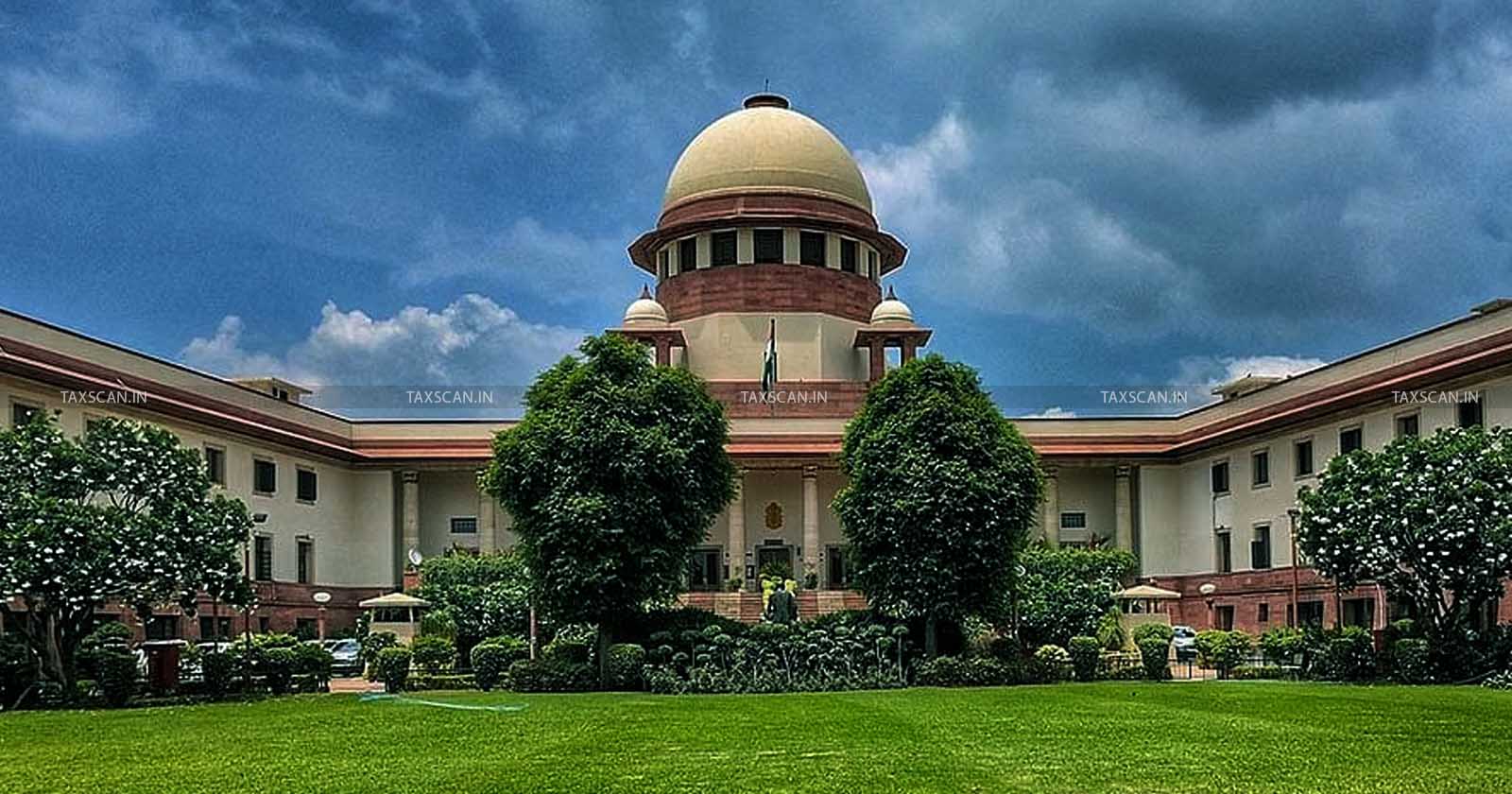"Royalty is not within the nature of a tax", reaffirms Supreme Court dismissing Review Petitions against Mineral Rights Judgment [Read Judgment]
The review petitions sought a reconsideration of the Court’s earlier ruling that royalty, particularly in the context of mineral rights, does not fall within the definition of a tax

supreme Court – mineral rights judgment – Supreme Court mineral rights judgment – Mineral royalty payments – taxscan
supreme Court – mineral rights judgment – Supreme Court mineral rights judgment – Mineral royalty payments – taxscan
The Supreme Court of India recently dismissed a series of review petitions challenging its earlier judgement concerning the classification of royalty payments as distinct from taxes. This reaffirmation came in the case of Karnataka Iron and Steel Manufacturers Association and other petitioners against the Mineral Area Development Authority.
In its order, the Supreme Court upheld its original view, stating that no error was apparent on the face of the record to warrant a review under Order XLVII Rule 1 of the Supreme Court Rules, 2013.
Read More: "Royalty is not Tax", Supreme Court Affirms States' Right to Levy Tax on Mining Rights
The Court had noted that royalties are contractual payments made to the state for the extraction of minerals and natural resources, rather than taxes imposed for the purpose of revenue generation. The ruling had also clarified that royalty payments are essentially compensation for the exploitation of the state’s resources, granted through a lease or contract, and are paid by the lessee or concessionaire.
Read Also: Mining Tax Decision to Apply Retrospectively from April 1, 2005: Supreme Court
The Supreme Court observed that royalties differ fundamentally from taxes in their nature and purpose. Taxes are mandatory contributions levied by the state to fund public services and are imposed under the government's sovereign authority. In contrast, royalty payments are made in exchange for the right to extract and utilise mineral resources, making them more akin to a fee for a service or concession.
The petitioners had argued that royalty should be considered a tax, but the Court found no merit in this contention. It reiterated that a tax is a compulsory exercise by the state without a quid pro quo, while royalty is a payment for a specific benefit, namely, the right to extract minerals.
Complete Supreme Court Judgment on GST from 2017 to 2024 with Free E-Book Access, Click here
The Court further noted that any attempt to classify royalties as taxes would blur the clear distinction established in constitutional and legal frameworks between taxes and non-tax revenue sources like royalties.
In dissent, Justice BV Nagarathna acknowledged that a valid case for review had been established. "Upon reviewing the petitions, a case for reconsideration under Order XLVII Rule 1 of the Supreme Court Rules, 2013 is evident," she stated, issuing a notice to the respondents, with a returnable date within eight weeks.
Despite this, in line with the majority opinion, the review petitions were ultimately dismissed.
Complete Supreme Court Judgment on GST from 2017 to 2024 with Free E-Book Access, Click here
Following the delivery of the main judgement, the Union Government and several mining companies requested that the ruling be applied only prospectively, expressing concerns over significant financial repercussions if states were to enforce claims on past tax liabilities.
Ultimately, the dismissal of the review petitions reinforce the view that royalty payments are not within the nature of a tax but are contractual payments governed by specific agreements between the state and the lessee.
To Read the full text of the Judgment CLICK HERE
Support our journalism by subscribing to Taxscan premium. Follow us on Telegram for quick updates


